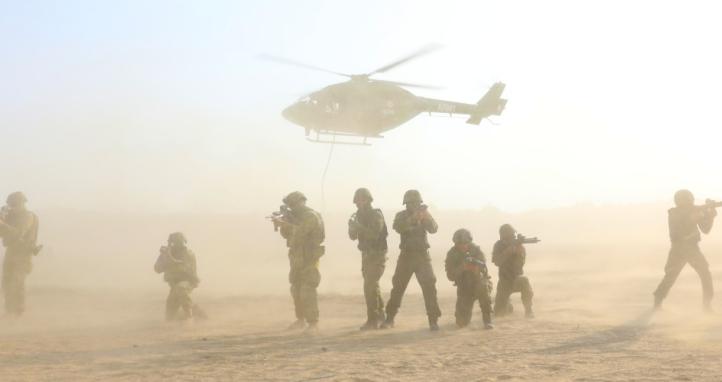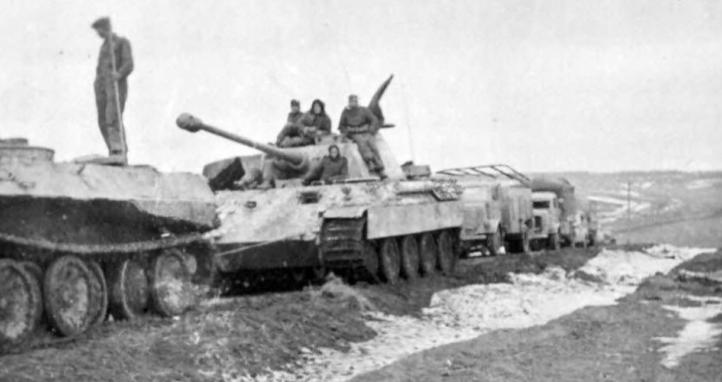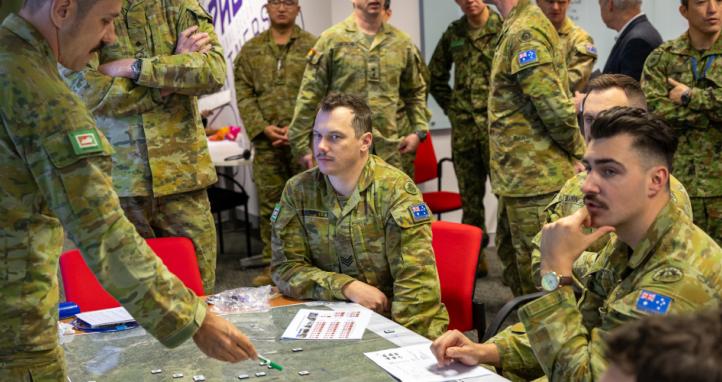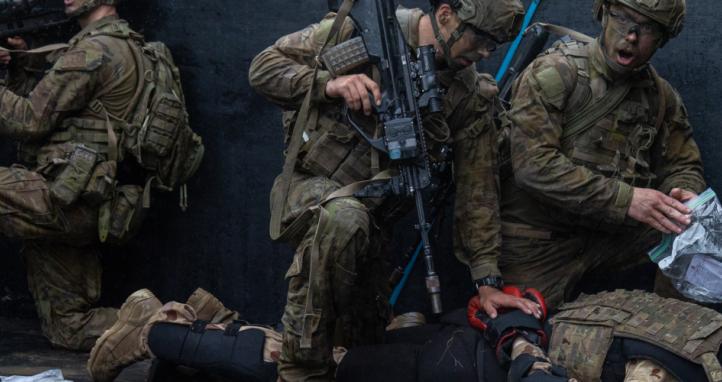Defence Strategic Review
The recently released Defence Strategic Review (DSR) highlights the potential threat of major power competition in the Indo-Pacific region, including the possibility for conflict.
This geopolitical shift necessitates a focus on protecting Australia's national interests and, importantly, the non-defence areas. One of the key areas mentioned in the DSR is ‘National Defence’, which highlights the role non-defence assets could play in any future conflict. These could conceivably include business, academia, government, and the Australian community more broadly.
National Defence and Resilience
According to the DSR, ‘National Defence’ is a focus on the defence of our nation in the face of potential threats in our region, and our resilience to those threats. It concludes that as a consequence of the risk that Australia now faces, our nation and its leaders must take a much more whole-of-government and whole-of-nation approach to security and strategic ‘resilience’, and that ‘National Defence’ should harness all elements of national power to protect Australia’s strategic interests.
A key recommendation in the report is that the Commonwealth should work with the states and territories to develop national and domestic ‘resilience’. In the context of national security, ‘resilience’ is described as the “ability to withstand, endure and recover from disruption”. The result being that a resilient Australia will be a harder target as well as being less susceptible to coercion.
The potential threat
The DSR outlines that at present there is only a remote possibility of any power contemplating an invasion of our continent; however, the threat of the use of military force or coercion against Australia does not require invasion. Areas targeted could be our trade and supply routes, which are vital for Australia’s economic prosperity, coercion through cyber-attacks, incursions into our north-west shelf region or parts of our exclusive economic zone, and disruptions to our sea lines of communication.
Australia is no longer safe by virtue of its geographic location. Intermediate-range ballistic missiles (IRBMs) have a range of 3000 to 4000 kilometres. This means that it is likely a missile fired from some of the major flashpoints in the Indo-Pacific could hit targets on the northern Australian mainland, including Darwin, Katherine, and Derby, which would include the Tindal and Curtin airbases [2]. It is worth noting that these towns were bombed in WWII by the Japanese, along with Wyndham, Broome, Exmouth, and other communities along the coast.
Economic ramifications
In a 2021 report by the Australian Strategic Policy Institute (ASPI), they found that the disruption to the Australian economy from a major conflict would be significant and that there would be widespread loss of employment in Australia, along with consumer and business goods shortages that would likely require rationing [3].
The ASPI report also noted that in the event of a blockade of Australia’s trade with China, the value of exports would fall by considerably more than $150 billion, both because demand from other trading partners would be reduced and because the diversion of Australian trade into other markets would depress prices, and likely trigger a recession in Australia.
Areas not mentioned in the DSR but that could be contemplated as targetable as part of any future conflict may include information warfare, political coercion and threats, embargoes, blockades of ports, economic attacks, targeting of fuel supplies, and general disruption to our way of life and freedom to travel. Disruptions in all or some of these areas would be severely damaging to Australia’s economy.
Australian national debate on the issue
The recent conflicts in the middle-east and Afghanistan saw little or no national debate; apart from the Defence members who deployed or were working in Defence there was very little impact, knowledge, or debate about the conflicts within the general population. It is likely that any future conflict will not be another small war, but rather on a scale that will affect many aspects of our current life and prosperity.
In a recent ABC news article, retired Admiral Chris Barrie concluded that it’s possible the impact on Australia, of any major conflict, could be greater than any other participant because of Australia’s low population, and he was quoted as saying, "The consequences for us would be very serious in terms of the Australian economy, the impact on the Australian people and the ravages to our way of life throughout the land.”
What should be considered and contemplated is debate, discussion, ideas, action, and programs to bring the Australian community along with Government policy to counter any future threats. Currently there is very little proper or robust discussion within our community on what the threat is and what impact it may have on our lives.
At the moment, the majority of the population seems to not want to know, discuss, or confront our potential future and the challenges that we may have to endure for a significant period of time. For this reason, I believe Australia needs to start contemplating what this future may look like, and what business, academia, all levels of government, and the population at large could do and prepare for in coming years, and importantly how they could assist their nation.
Leveraging National Defence
We know from the DSR and other recent strategic reviews that Defence needs to and is adapting quickly to the changing geopolitical situation and potential threats; however, Defence and other Government departments cannot be the only groups working to counter the threat because they cannot succeed alone.
There are multiple areas and ways for business, academia, governments, and the community to assist. Some of these could include increasing fuel security, ship building, IT, cyber, communications, etc – as well as ramping up production of civilian and military plant, equipment, and supplies that may be required. We are far behind where we need to be compared to our potential adversaries who have been preparing for a significant period of time. To help facilitate discussions and meetings with the community, business, and academia; retired service men and women could be utilised and be the conduit for ideas and actions to be taken.
National debate should also include what properties, industries, sectors, and businesses could or should be nationalised for a period of time during a conflict, so that they work to the benefit of the nation in a time of need, similar to what occurred in previous large-scale conflicts such as WWI and WWII. We also need to improve the resilience of critical infrastructure and supply chains. This includes securing essential resources and ensuring that key infrastructure such as power grids, communication networks, transport systems, etc can withstand physical and cyber-attacks.
A skilled civilian force
Australia should also consider some form of low-level volunteer force/secondment/Defence reserve service/mobilisation in key areas where people with the required skills and knowledge can work with or for Defence or in Government to perform critical roles or fill critical positions in key sectors. One area could be cyber security to ensure we have the best talent enhancing national security.
With a resilient community supporting Defence and the nation, our potential adversaries will struggle to break the will of our nation – and as Clausewitz wrote, war is a contest of wills. As the ongoing war in Ukraine has shown, in a large conflict, a smaller force can still deter a larger and stronger force by way of a whole-of-nation effort committed to a common goal.
Conclusion
Given the likely scale of any future conflict, it will require a higher level of public awareness, involvement, and understanding by the community. Australians needs to start discussing and preparing for a potentially large or total war scenario that may go on for an extended period of time. Generally, the community at large is not having the required debates on what future threats may be and are not ready or geared to support the nation, and this needs to change.









